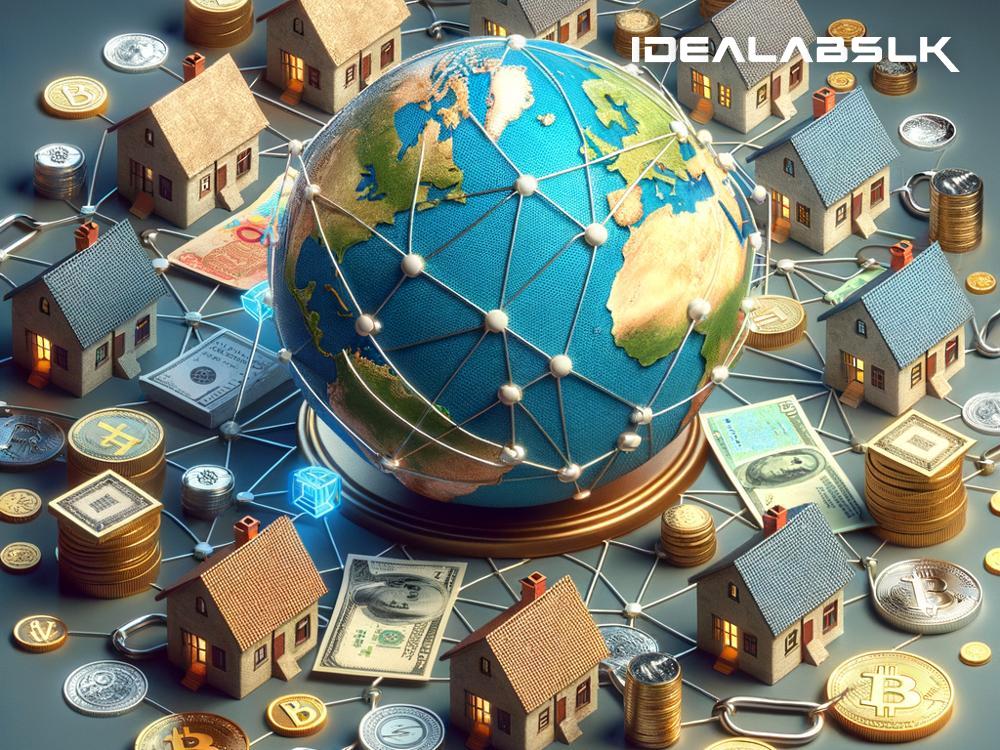Unlocking Global Real Estate Investment through Blockchain
In today's digital era, technology continuously reshapes how we engage with the world, especially regarding investment opportunities. One of the most significant breakthroughs comes from blockchain technology, a system that allows digital information to be distributed but not copied. This groundbreaking approach has begun to unlock the potential for global real estate investment, making it easier, safer, and more accessible than ever before.
Understanding Blockchain and Real Estate
To grasp how blockchain is revolutionizing real estate investment, think of blockchain as a digital ledger. Unlike traditional ledgers, this one is completely transparent and highly secure because of its decentralized nature. Each transaction on a blockchain is like a block securely connected to the next, forming a chain. And when we apply this innovation to real estate, it transforms the entire property investing landscape.
Real estate, traditionally seen as a stable investment, often comes with high entry barriers. This includes substantial initial capital, complicated bureaucracy, and a significant knowledge gap. Blockchain technology promises to dismantle these barriers, promoting a more inclusive opportunity for investors worldwide.
Key Advantages of Blockchain in Real Estate
1. Enhanced Accessibility Through tokenization, which divides property ownership into tokens stored on a blockchain, investors can buy shares of real estate much like purchasing stock in a company. This lowers the entry point, allowing small-scale investors from anywhere in the world to participate in the real estate market, which was previously dominated by the wealthy or large investment firms.
2. Greater Transparency Blockchain's transparent nature provides clear transaction histories, ensuring that every record is accurate and easily verifiable. This openness helps eliminate fraud and errors, making it safer for investors to put their money into global real estate markets without fear of hidden issues or discrepancies.
3. Increased Liquidity Real estate is typically illiquid, meaning it can't be quickly sold for cash without a significant loss in value. However, by tokenizing property and allowing these tokens to be traded like stocks, blockchain can significantly increase the liquidity of real estate investments, enabling investors to quickly sell or buy additional shares.
4. Reduced Costs Blockchain technology can streamline the traditionally cumbersome and expensive processes involved in real estate transactions, including property searches, due diligence, financing, and closing. By automating these services and eliminating middlemen, blockchain can reduce transaction times and costs, making real estate investment more cost-effective for individuals across the globe.
Global Investment Opportunities
The impact of blockchain extends beyond making real estate investment easier and cheaper; it's also making the market truly global. Investors are no longer restricted to their geographical location; instead, they can explore and invest in property markets around the world. This democratization of real estate not only opens up new opportunities for investors but also helps stabilize markets by diversifying investment sources.
Real-World Applications and Successes
We're already seeing real-world applications of blockchain in the real estate sector. Companies like Propy are facilitating international property transactions entirely on the blockchain, ensuring secure, transparent, and efficient processes. Meanwhile, platforms like RealT are offering tokenized shares in rental properties, allowing investors to earn passive income from real estate with minimal starting capital.
These examples illustrate not only the potential but also the growing acceptance and success of blockchain-based real estate investments. They herald a future where the global real estate market becomes increasingly interconnected, transparent, and accessible to anyone with an internet connection.
The Path Forward
As we look ahead, the role of blockchain in enabling global real estate investment seems destined to expand. However, for this future to fully materialize, ongoing challenges such as regulatory acceptance, technology literacy, and the development of global standards must be addressed. Still, the trajectory is clear: blockchain technology is laying the foundation for a more inclusive, efficient, and secure global real estate market.
Conclusion
Blockchain technology is not just a buzzword or a passing trend; it's a powerful tool that's beginning to unlock the immense potential of global real estate investment. By lowering barriers to entry, enhancing transparency, increasing liquidity, and reducing costs, blockchain is making real estate investment accessible to individuals around the world. As we continue to embrace this innovation, the dream of a truly global and democratized real estate market is becoming a reality.

